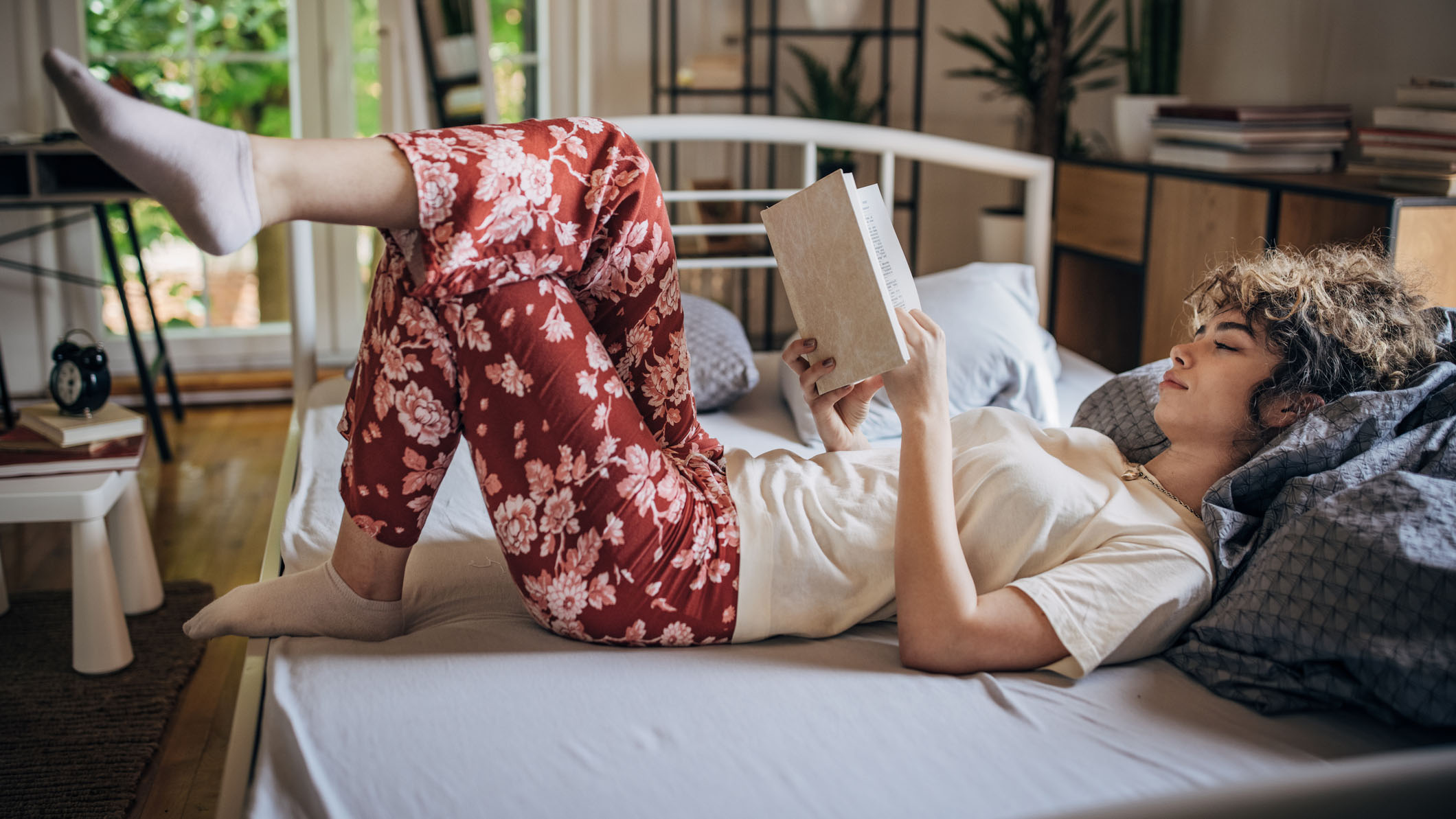
A bedtime might be something we associate with babies and young children, but establishing a nighttime routine in adulthood can improve your sleep.
According to experts, a healthy bedtime routine — which involves an hour of activities before sleep — prepares your body to fall asleep faster.
In the US, an estimated one in three adults admit to not getting enough sleep, processes that can improve your overall sleep quality are always worth paying attention to.
But what exactly is a nighttime routine?
“A bedtime routine as a concept is really bringing people's attention to the fact that actually the thing that we naturally do for young children or babies is a really good idea for everybody,” says sleep expert, chartered psychologist and neuroscientist Dr Lindsay Browning.
Let’s take a closer look at what a healthy nighttime routine might look for adults, plus what to avoid doing close to bedtime.
- Read more: I asked AI to curate the perfect nighttime routine — here’s how it compares to my advice as a sleep editor
- Read more: Avoid this common nighttime routine mistake if you want to fall asleep fast
What is a nighttime routine for sleep?
A nighttime routine — also referred to as a bedtime routine — involves the same sequence of activities in the run up to your bedtime that helps prepare both brain and body for sleep. “A bedtime routine just means doing the same things in the same kind of steps,” explains Dr. Browning, who notes that there is no one-size-fits-all approach to establishing a nighttime routine, as what we find relaxing differs from person to person.
“We give babies a bedtime routine without even thinking about it. We change their nappies, we give them a bottle of milk, we maybe give them a bath, we read a story and we put them into bed. That is a bedtime routine.
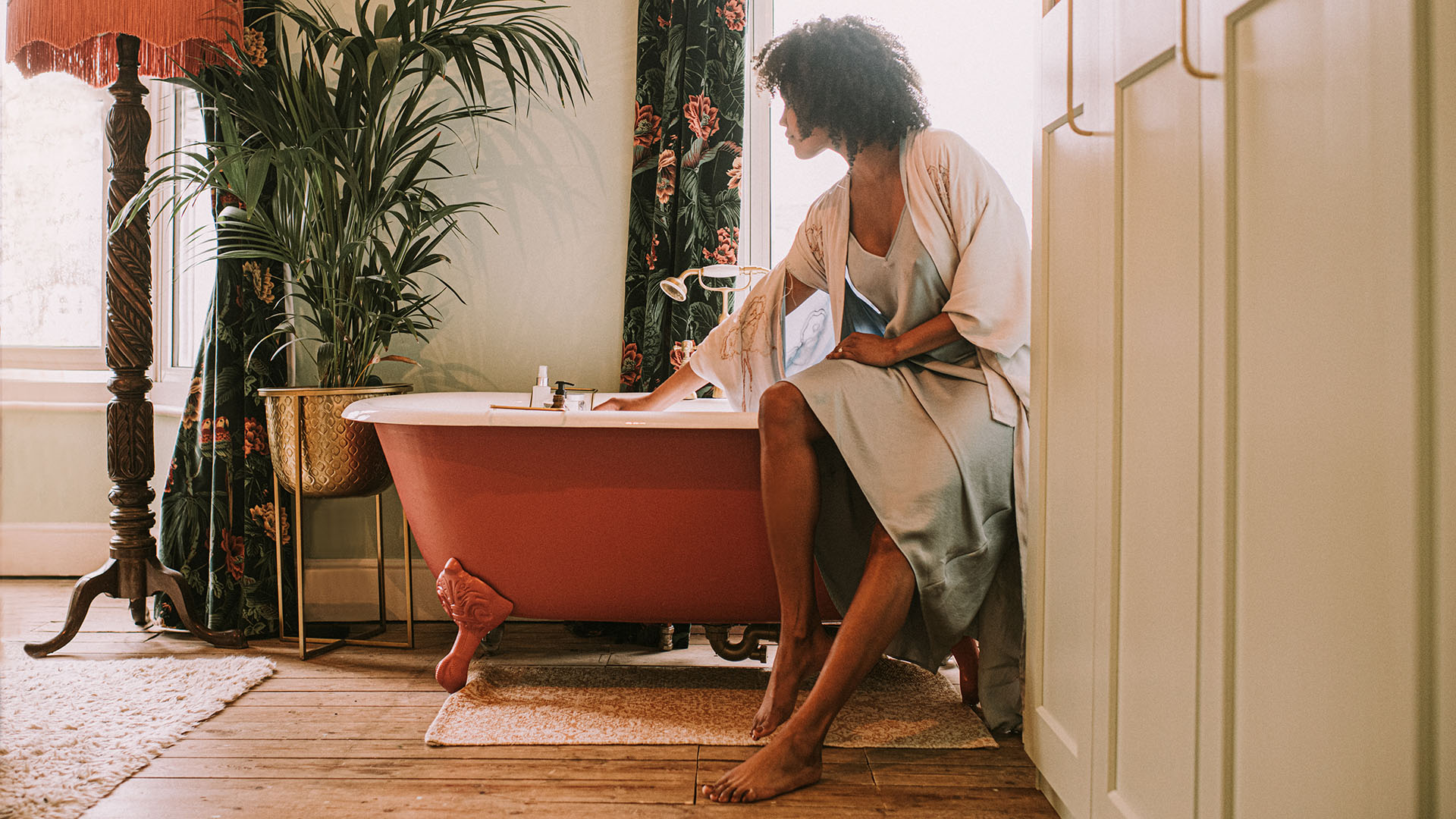
“And often as our children get older, we become adults, we stop doing a bedtime routine, we stop doing the same things before bed, thinking that we can just magically switch off our brains and that sleep’s just going to happen.”
Can a nighttime routine help you fall asleep faster?
Instead of a nighttime sleep routine, many of us have fallen into unhealthy habits that make it harder for us to fall asleep, such as late night scrolling on our phones or working right up to bedtime. This can make it harder to switch off and fall asleep, leading to sleep deprivation.
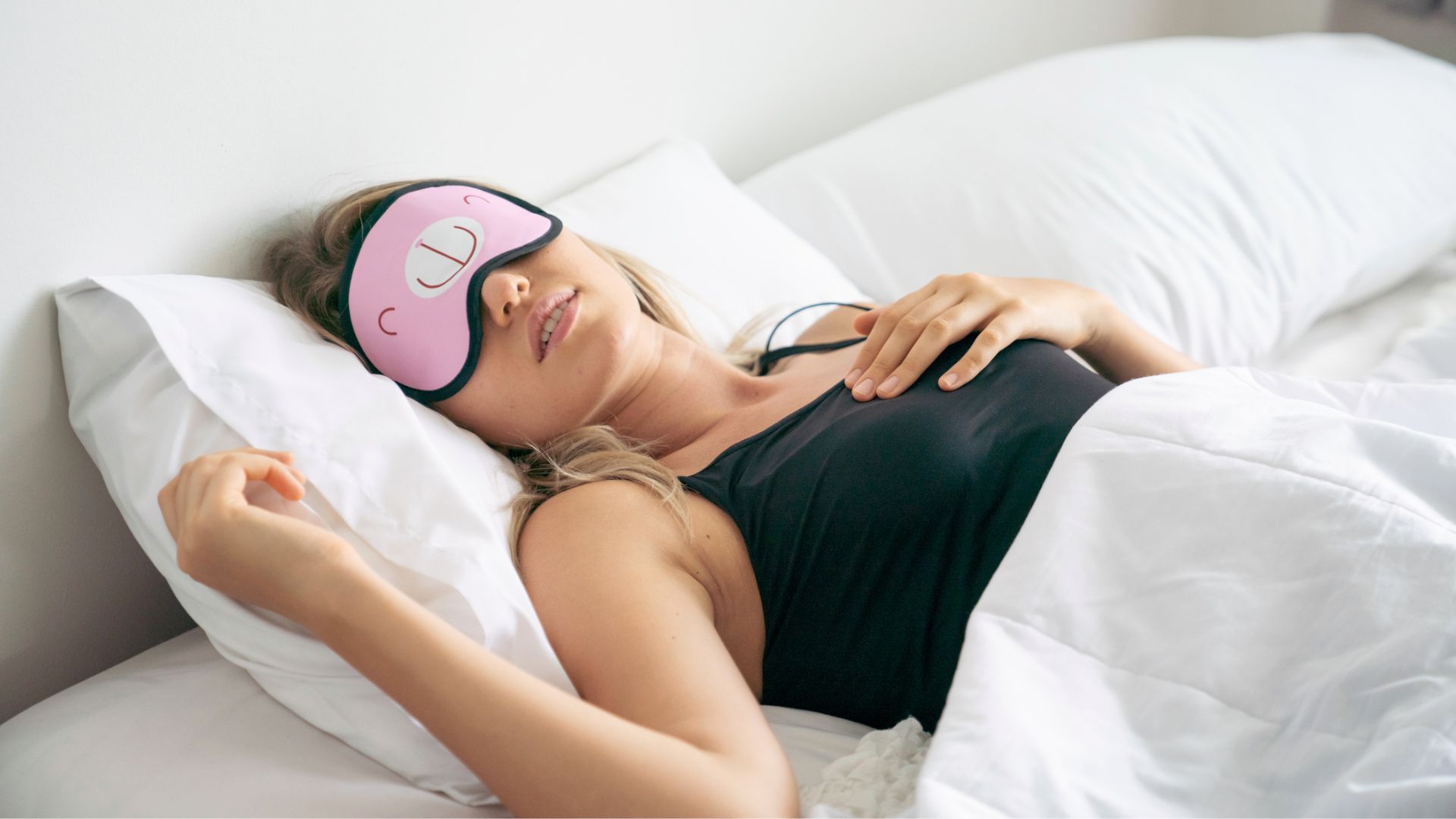
However, introducing a sequence of activities that we find relaxing and helps prepare both brain and body for sleep can reduce the time it takes to fall asleep. Whether it’s a cup of camomile tea or spraying your pillow with lavender spray, consistent sleep cues help send signals to our brain that it’s time for sleep.
“A bedtime routine really is about winding down,” says Dr. Browning. “It's about transitioning from the busy stress work of the day to sleep. And we can only sleep when we relax. When we’re anxious, we can’t sleep. So anything, literally anything, that you find relaxing is going to help you sleep.”
3 things to do for the perfect nighttime routine
1. Include activities that you find relaxing
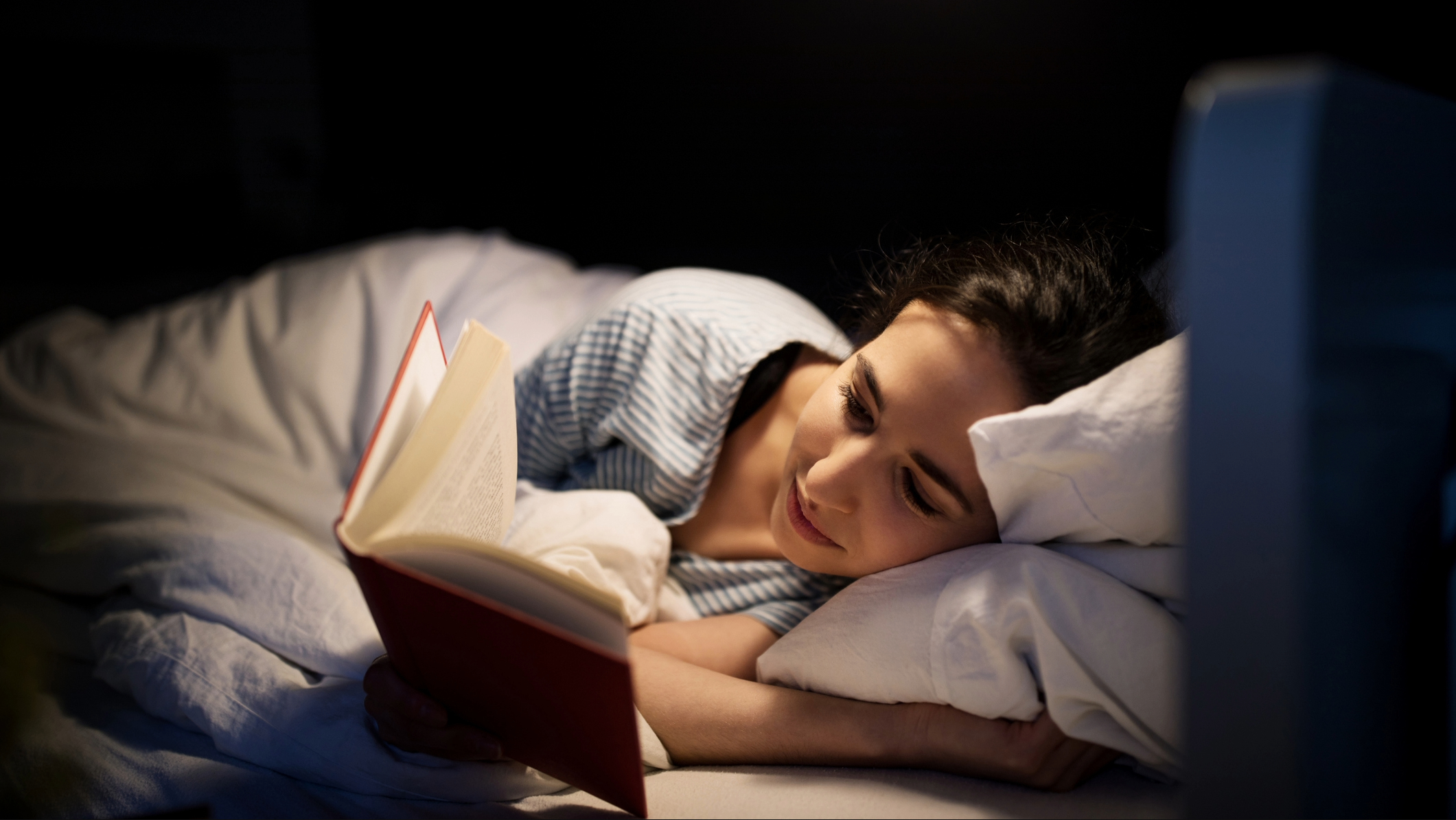
Choose a sequence of activities that you find relaxing — not because you should find them relaxing. “You might say listen to classical music, and lights and candles,” says Dr. Browning. “But lots of people don't like classical music and actually putting classical music on would make them really annoyed. So it's about finding what you find relaxing.”
Why not try picking up a book? Reading before bed can reduce stress by 68%.
2. Be consistent with your nighttime routine
By her own admission, Dr. Browning sleeps exceptionally well every night. This is because she has established a nighttime routine that helps prepare her body for sleep. In order for your brain to build an association with a certain sequence of actions or smells with sleep, you need to follow the same routine consistently.
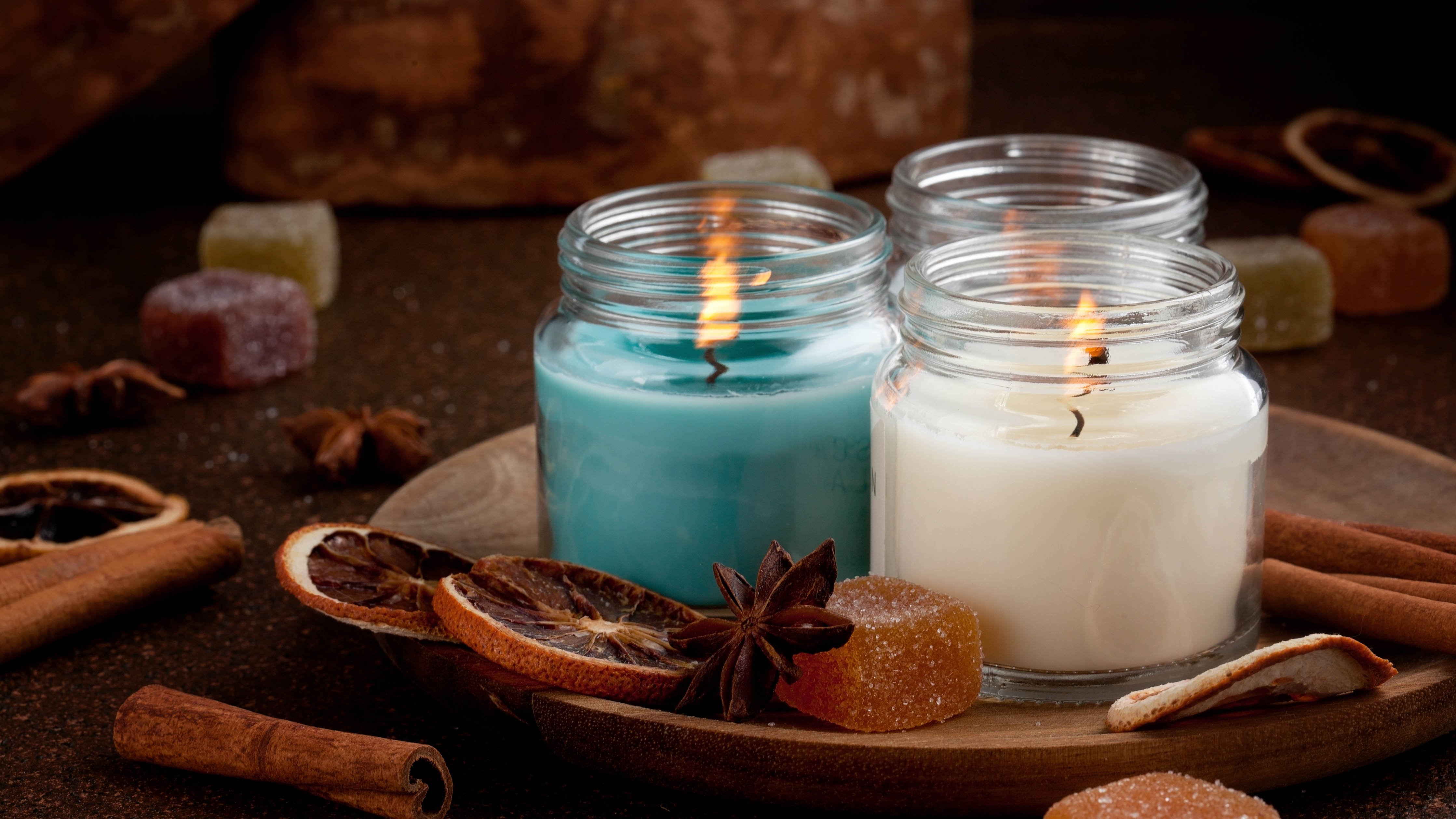
"If you're doing the same things, it could be a certain smell or reading a book in bed or you have the same snuggly pillow in bed, those things just help to signal to your brain because they're associated with repeatedly - this happens, then sleep happens," says Dr. Browning."
3. Use your bedroom for sleep
Your bedroom should be a space that you use for sleep (or sex) only, it shouldn't be somewhere where you check work emails or scribble down to-do lists. "You can start to associate a feeling or something with an object," explains Dr. Browning, who adds that we should be protective of what we do in our bedrooms.
"We want to pair your bed with sleeping not with scrolling through your phone. Don't reply to emails in bed. Don't get up, open the laptop in the first thing in the morning and start doing couple things before you get up. Get out of bed to do those things. So your bed is only associated with sleep, and sex."
5 common nighttime routine mistakes to avoid
1. Watching anything too stimulating
If you want to fall asleep faster, you might need to consider skipping the news. Like with the bedtime routines that we set for babies and children, a bedtime routine shouldn't be overstimulating. As such, you might want to avoid anything that is too thought-provoking or distressing.
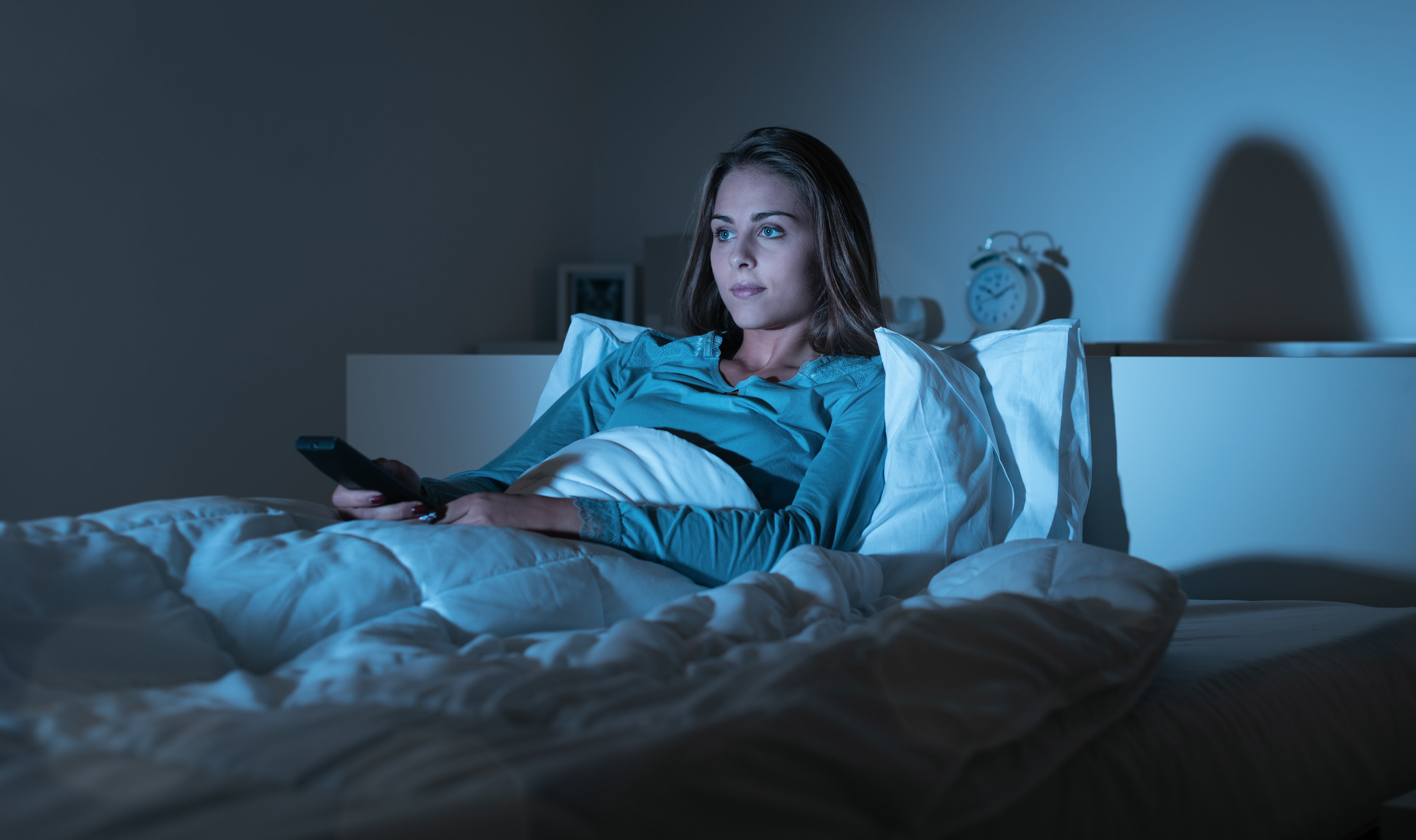
"Watching the 10 O'Clock News, for example, may not be something that you should be doing before bed, because it's going to just make you think about and bring to mind lots of anxiety provoking things," says Dr. Browning. "And when you get into bed, you're thinking about the world, and then you can't sleep."
2. Checking your phone 'one last time'
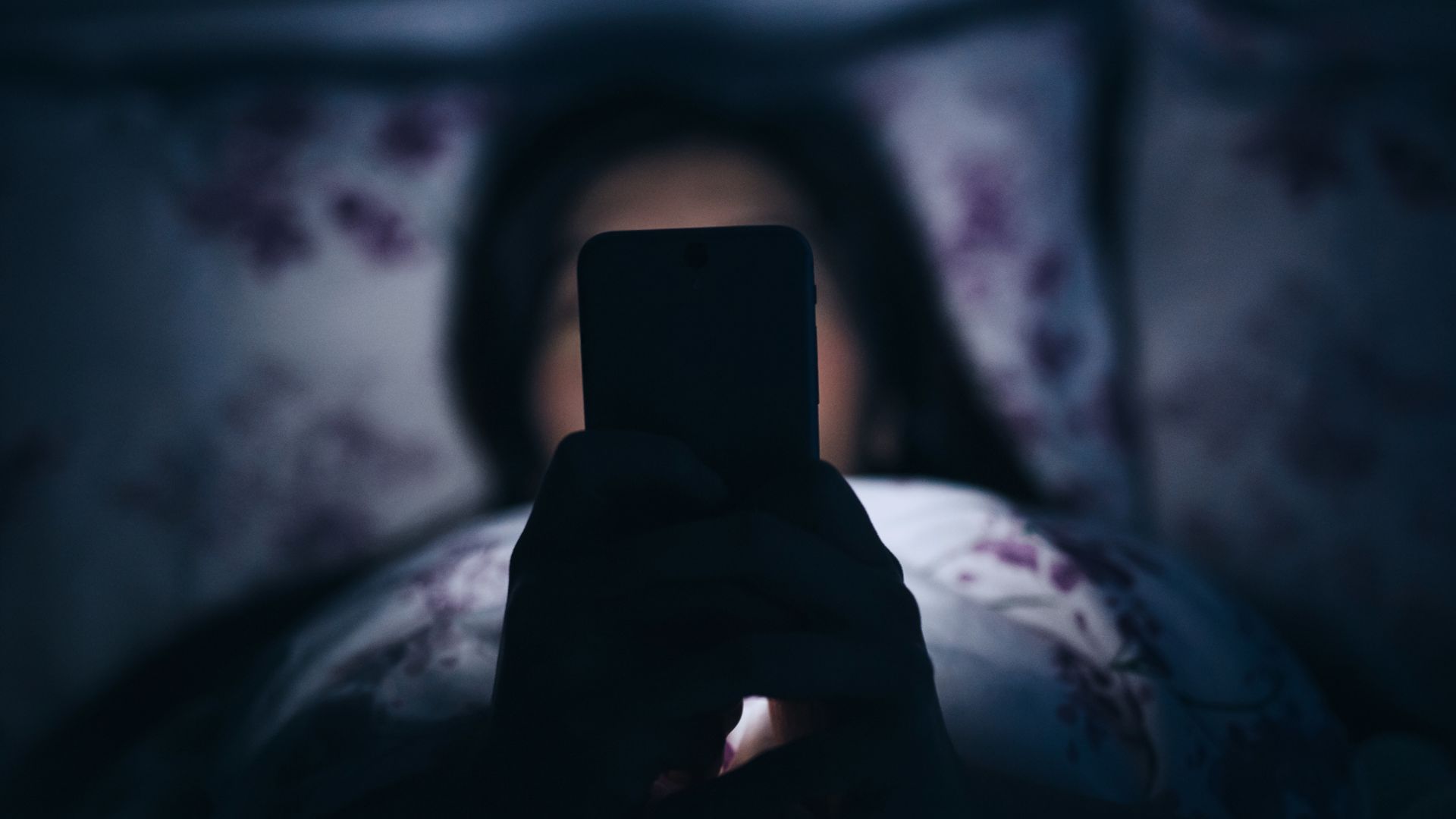
Resist the urge to check your phone one last time before going to sleep. Not only will the blue light emitted rom your phone surpress your body's natural melatonin production (that's the hormone that helps us feel tired), it could lead to anxiety spikes, which will make it almost impossible for you to fall asleep.
"If you check your phone in that 30 minutes to an hour before bed, you're likely to be exposed to something new, that you're going to have to think about or deal with, whether that be a sort of a friendship thing or a work thing," explains Dr. Browning.
Regardless of what your bedtime routine looked like in the lead up to that point, checking your phone one last time could lead to you no longer feeling tired and instead feeling anxious about something you have to do — don't do it.
3. Making your bedtime routine too long
According to Dr. Browning, a nighttime routine should last between 30 minutes and an hour. Anything longer than that might begin to feel like a chore, which will make it harder to stick to.
“Actually [a long bedtime routine] becomes very unhelpful because rather than it being a relaxing thing, what you're doing is you're taking up your entire evening, doing a lot of boring things with the sole intention of sleeping better,” says Dr. Browning. “If you think that you need more than an hour, and it's eating into the evening, and actually you're not doing things that you would rather do, because you're trying to fix your sleep, then it could become unhealthy.
4. Brushing your teeth
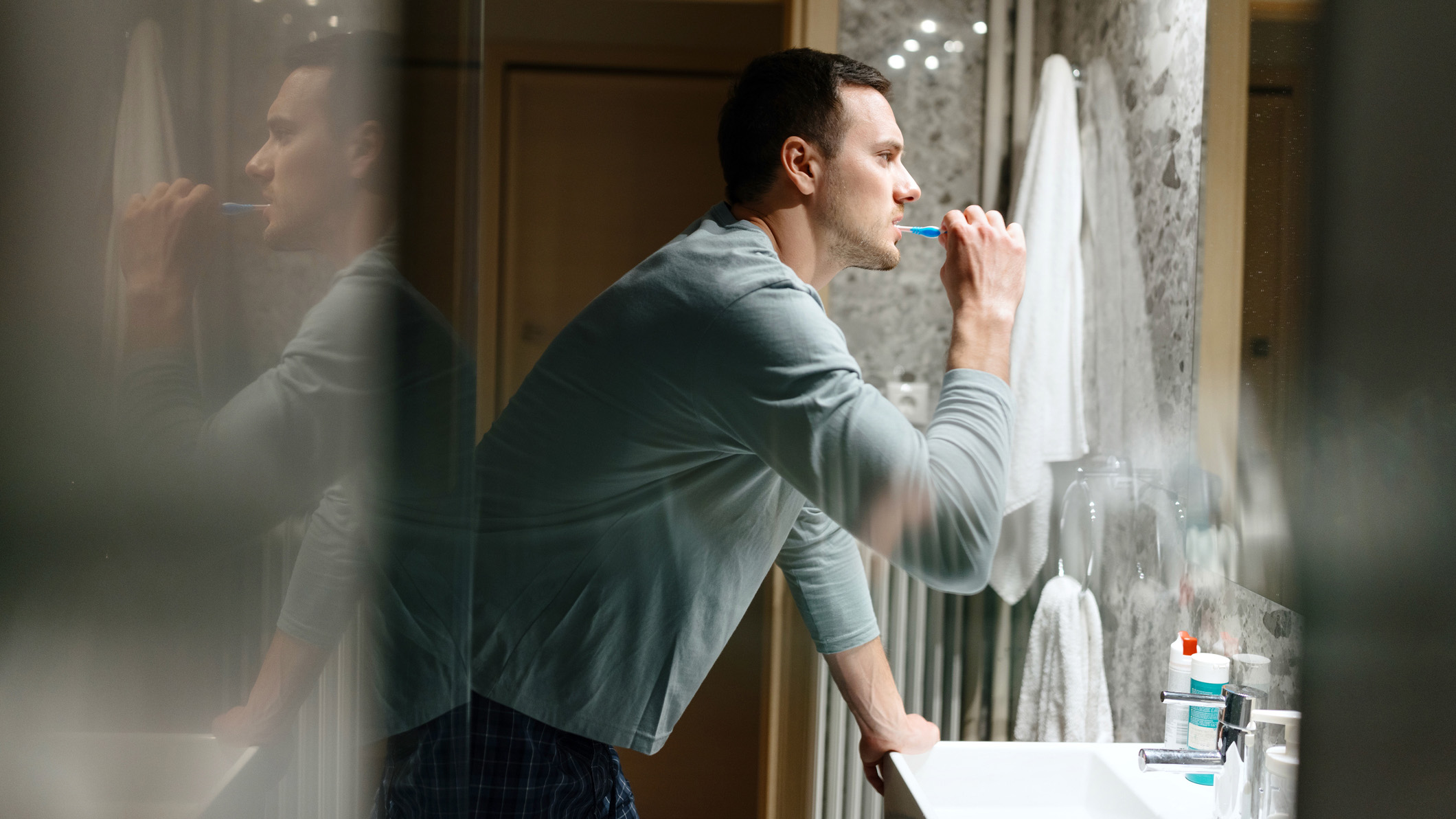
It's drilled into us from a young age that we should never go to bed without brushing our teeth. While it's important to brush our teeth every morning and every evening for a healthy smile, that doesn't mean you should do this task right before bed.
“The biggest nighttime routine mistake people make is leaving brushing their pre-bed grooming until the moment they’re super-tired and ready to fall asleep," says Certified Sleep Science Coach Claire Davies. "If you’re yawning and ready to sleep, switching on a bright bathroom light to brush your teeth and wash your face is a sure-fire way to wake yourself up again."
5. Vigorous exercise
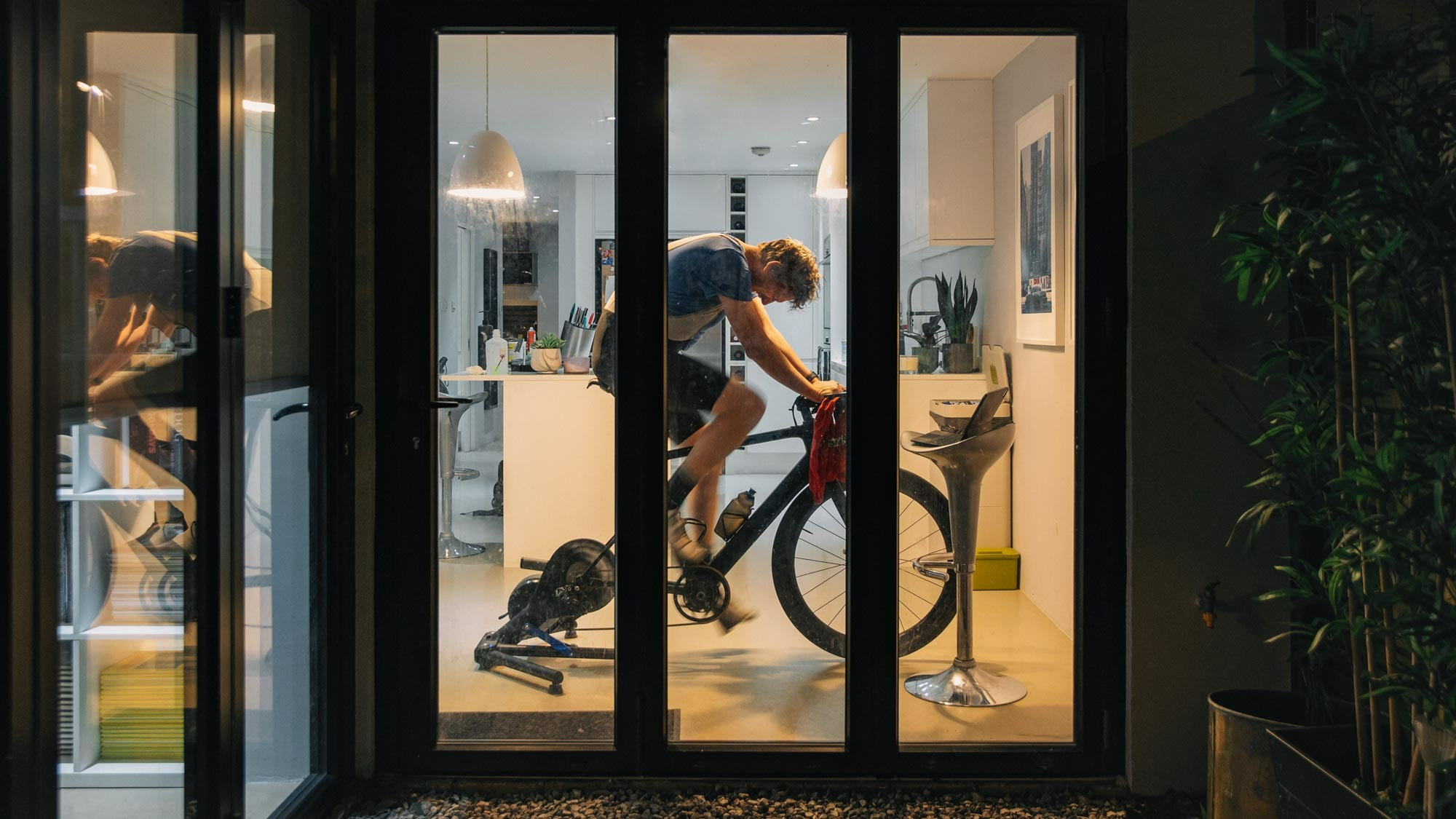
While an intense workout can tire us out, that doesn't mean it will help you fall asleep quicker.
"Vigorous workouts raise your core body temperature, disrupting your body’s natural cooling process for sleep," explains certified yoga therapist and sleep coach Monica Le Baron. "Opt for lighter activities like a short walk or gentle yoga to prepare your body for rest. "







